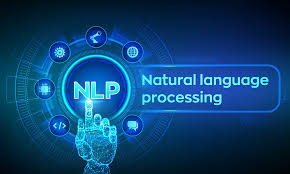Natural Language Processing (NLP) for Textual Data Analysis Training Course
Natural Language Processing (NLP) for Textual Data Analysis Training Course is designed to provide in-depth knowledge and hands-on experience in text mining, deep learning, machine learning algorithms, tokenization, and language modeling, enabling participants to build cutting-edge solutions in NLP.

Course Overview
Natural Language Processing (NLP) for Textual Data Analysis Training Course
Introduction
In the digital age, Natural Language Processing (NLP) plays a pivotal role in transforming unstructured textual data into actionable insights. With the rise of big data, artificial intelligence, and machine learning, businesses, researchers, and governments are harnessing the power of NLP to enhance decision-making, sentiment analysis, automation, and data mining. Natural Language Processing (NLP) for Textual Data Analysis Training Course is designed to provide in-depth knowledge and hands-on experience in text mining, deep learning, machine learning algorithms, tokenization, and language modeling, enabling participants to build cutting-edge solutions in NLP.
This NLP training course empowers learners to gain expertise in semantic analysis, information extraction, text classification, and transformer-based models like BERT and GPT. With practical case studies and industry-grade tools, participants will be guided through real-world applications of NLP, including chatbot development, document clustering, social media sentiment analysis, and topic modeling—equipping them to lead in AI-driven environments.
Course Objectives
- Understand the fundamentals of Natural Language Processing and its role in AI and machine learning.
- Apply text preprocessing techniques such as stemming, lemmatization, and stopword removal.
- Implement tokenization and vectorization using methods like TF-IDF and Word2Vec.
- Build text classification models using supervised learning algorithms.
- Analyze sentiment and opinion mining for product reviews and social media posts.
- Utilize Named Entity Recognition (NER) for extracting structured information.
- Explore topic modeling techniques like LDA and NMF.
- Integrate NLP with deep learning using RNNs, LSTMs, and transformers.
- Deploy transformer-based models (BERT, GPT) for contextual understanding.
- Conduct semantic similarity analysis between documents and queries.
- Perform document clustering and unsupervised text analytics.
- Design and build AI chatbots using NLP and rule-based logic.
- Leverage cloud-based NLP tools and APIs for scalable solutions.
Target Audiences
- Data Scientists and AI Engineers
- Business Analysts and Data Analysts
- Machine Learning Practitioners
- Software Developers and Programmers
- Research Scholars in Linguistics and AI
- IT Consultants and Automation Specialists
- NLP Enthusiasts and Tech Startups
- Government Analysts and Policy Researchers
Course Duration: 5 days
Course Modules
Module 1: Introduction to Natural Language Processing
- Understanding NLP and its importance
- Overview of textual data characteristics
- NLP vs. Traditional Machine Learning
- Applications of NLP across industries
- Key libraries: NLTK, spaCy, Gensim
- Case Study: Automating customer service queries using NLP
Module 2: Text Preprocessing Techniques
- Text cleaning and normalization
- Stemming and Lemmatization
- Tokenization strategies
- Removing noise and stopwords
- Text vectorization (TF-IDF, Bag-of-Words)
- Case Study: Preprocessing Twitter data for sentiment analysis
Module 3: Sentiment and Emotion Analysis
- Rule-based vs. ML-based sentiment detection
- Polarity and subjectivity analysis
- Tools: TextBlob, VADER, and custom models
- Handling sarcasm and negations
- Multilingual sentiment analysis
- Case Study: Product sentiment analysis on Amazon reviews
Module 4: Named Entity Recognition and POS Tagging
- Understanding POS tagging and NER
- Building custom NER models
- Use of spaCy and StanfordNLP
- Entity linking and disambiguation
- Application in legal and medical texts
- Case Study: Extracting company names from financial news articles
Module 5: Topic Modeling and Document Clustering
- Introduction to unsupervised learning
- Latent Dirichlet Allocation (LDA)
- Non-negative Matrix Factorization (NMF)
- K-means and hierarchical clustering
- Visualization of topic models
- Case Study: Clustering news articles into thematic categories
Module 6: Deep Learning for NLP
- Basics of deep learning in text
- Recurrent Neural Networks (RNNs) and LSTM
- Attention mechanism and sequence modeling
- Transformers overview
- Implementing simple DL models in TensorFlow/PyTorch
- Case Study: Classifying toxic online comments using LSTM
Module 7: Transformer-Based Models (BERT, GPT)
- Introduction to transformers and attention
- Pre-trained vs. fine-tuned models
- Using HuggingFace Transformers
- BERT for Q&A and text classification
- GPT for text generation and summarization
- Case Study: Deploying BERT to extract insights from legal contracts
Module 8: Real-World NLP Applications and Deployment
- Chatbot development with NLP
- Integrating APIs (Google NLP, AWS Comprehend)
- Deploying NLP models to cloud
- Ethical concerns in NLP
- Scalability and performance monitoring
- Case Study: Building and deploying a multilingual chatbot for customer support
Training Methodology
- Interactive lectures with visual and textual content
- Hands-on coding labs using Python (Jupyter Notebooks)
- Real-world case studies from various domains
- Group projects and peer-reviewed assignments
- Continuous assessment through quizzes and practicals
- Final project with feedback and certification
Register as a group from 3 participants for a Discount
Send us an email: [email protected] or call +254724527104
Certification
Upon successful completion of this training, participants will be issued with a globally- recognized certificate.
Tailor-Made Course
We also offer tailor-made courses based on your needs.
Key Notes
a. The participant must be conversant with English.
b. Upon completion of training the participant will be issued with an Authorized Training Certificate
c. Course duration is flexible and the contents can be modified to fit any number of days.
d. The course fee includes facilitation training materials, 2 coffee breaks, buffet lunch and A Certificate upon successful completion of Training.
e. One-year post-training support Consultation and Coaching provided after the course.
f. Payment should be done at least a week before commence of the training, to DATASTAT CONSULTANCY LTD account, as indicated in the invoice so as to enable us prepare better for you.